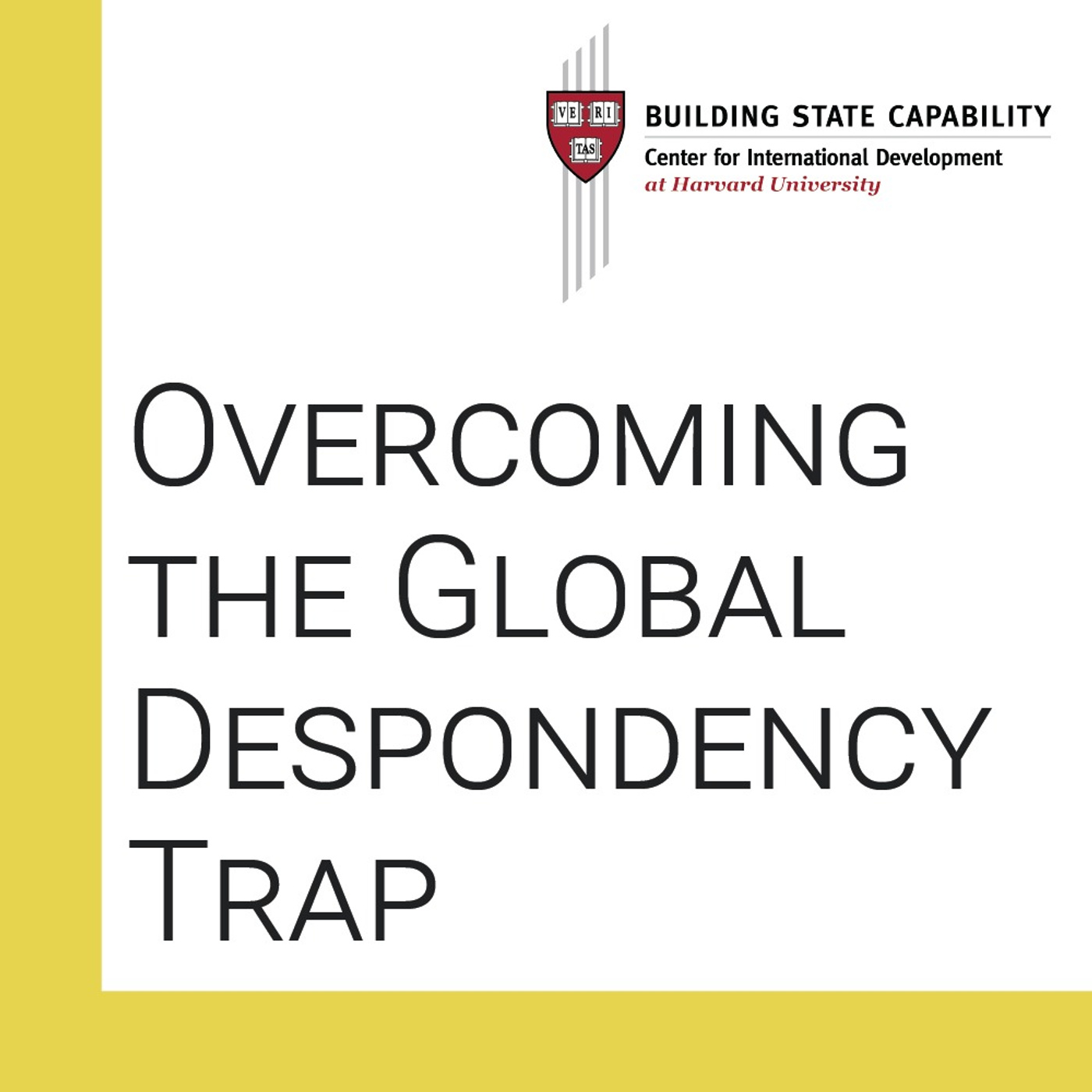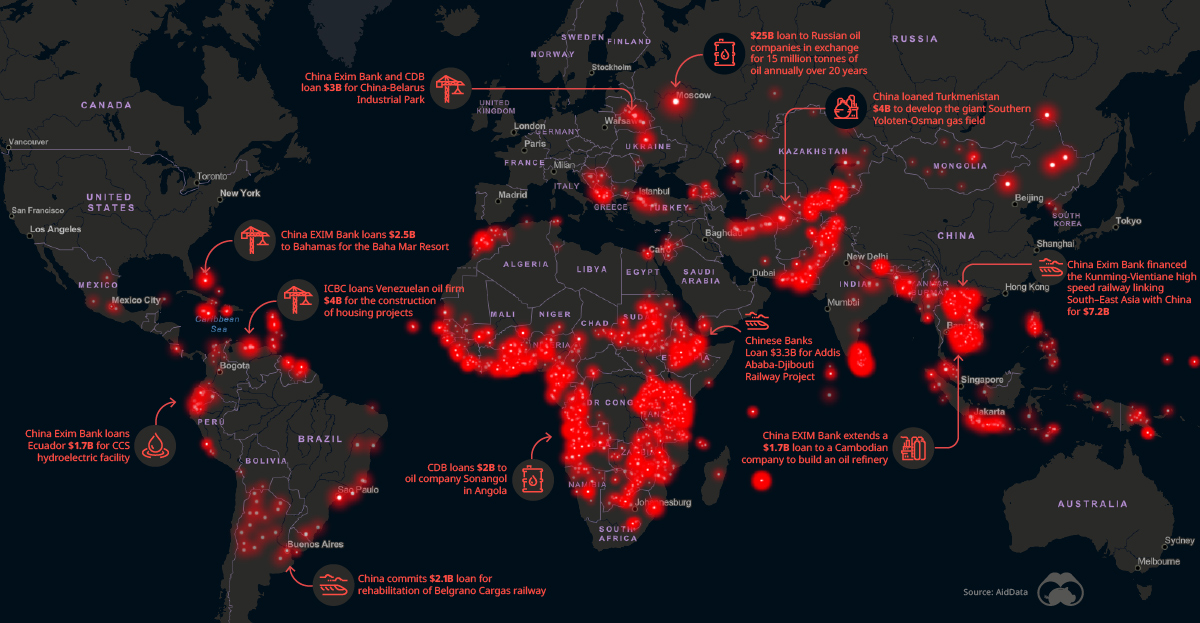Highlights
- 50 billion reasons to check your phone settings
- Let slip the dogs of tax war
- Investors turn up the heat (or react to it)?
- Is this 2020 or 2010?
- Time for some funder new year resolutions?
- TAI Spotlight: How can grantees’ influence grantmakers?
Happy new year! The TAI Weekly is back and refreshed for 2020. Not that the world took a rest, even if we did. Here go the stories that stood out from the past few weeks …
50 billion reasons to check your phone settings

Image credit: The CW39 Houston
A single dataset with 50 billion entries caught our eye. The New York Times alerts scares us with what is being done with all the pings from our phones. Seems the surveillance industry is now omnipresent in our digital lives, underscoring the need for regulation and transparency to help individuals find a balance between privacy and convenience. Against this backdrop, the Trump White House released principles for regulating AI although they also urge federal agencies not to “needlessly hamper” AI innovation. First movers in the regulatory space may have more traction in shaping the rules of other countries. More attention should focus on global rulemaking in 2020. No surprise that China is looking to shape global standards and governance of facial recognition in line with their exports – ready-made surveillance package anyone?
Returning to the data itself, World Bank’s Steven Davenport gives a case study example of how data literacy can help foster a bottom up approach to development and meeting the SDGs, rather than a top down approach. Meanwhile, a win for US aid transparency as the government signs the GREAT Act into law that will require use of open identifiers for all grant recipients, and support more transparency and accountability of how government grant funds are used.
Let slip the dogs of tax war
Find out how aid data can make an immediate impact as The Publish What You Fund Team shares experience from their trip to Nigeria. On the other hand, learn how Nigeria’s low tax collection and poor quality of government expenditure affects the sustainability of the country’s development finance.
The Nigerian finance ministry will be all too familiar with Shell oil company’s tax payments, but this time it is the UK exchequer that will be raising eyebrows. As the company published the taxes it paid globally it proved a good conversation starter – including questions as to why it paid no income tax in the UK despite significant revenues. In a positive surprise, Ireland took in 1.4billion euro more in corporate taxes than they expected in 2019, but the finance minister warned against relying on this going forward as multinational taxation rules change in the coming years.
Prospects for a global tax war have not lessened heading into 2020. Rather more countries join the push for new digital tax law despite US threats of retaliation. Austria, Canada, Indonesia are the newest countries to join the Digital Services Tax bandwagon. The G77 – representing more than 130 developing countries – continues advocating for the establishment of a UN body on tax to fix a broken global tax system.

Essential Listening: Overcoming the Global Dependency Trap
Are you in a despondency trap? Alice Evans will help you find out. In this podcast, she discusses her new paper on overcoming global despondency traps and strengthening corporate accountability in supply chains. Her research features 140 interviews with campaigners, politicians, and businesses in 10 European countries.
Investors turn up the heat (or react to it)?
Talking of corporate supply chains, Ghana and Ivory Coast want a fairer share of profits from the global confectionery industry. However, attempts to ensure a higher share of revenues for cocoa growers are still marginal and complicated by the need to align producer and consumer country governments, industry, farmers and civil society players. In neighboring Liberia, Danielle Paquette details how workers are feeling powerless at the end of the rubber industry supply chain.
Investors are increasingly pushing firms on environmental, social and governance (ESG) factors, but The Economist team argue ratings systems are long overdue for consolidation, more consistency and minimizing opportunities for green or open washing.
Despite the disappointment at December’s UN Climate Change Conference, investors continue to turn up the heat on companies over emissions disclosure. (The images from Australia can only reinforce their urgency). Will 2020 see asset managers becoming a significant voice in pushing transparency? Repsol offers inspiration with a transparent commitment to zero emissions and how to get there. Will financiers reward them for taking the step?
Of course, not all firms with a big footprint are much influenced by Western investors. AidData has compiled a dataset showing a very quiet revolution that details Chinese influence on global megaproject financing – some good, some questionable. Is this how power manifests in the 21st century? Perhaps pair with new research from Jubilee Debt Campaign showing how rising debt payments are leading to public spending cuts in some of the most impoverished countries.

Map showing China’s diplomacy spending. Image Credit: AidData via Visual Capitalist
Is this 2020 or 2010?
The United States Securities and Exchange Commission (SEC) finally releases a rewrite of its rule on extractives transparency for comment. Yes, a decade on from the Dodd-Frank legislation, the rules are still in limbo. SEC staff might want to take a deep breath before opening their inbox. Oxfam’s opening retort emphasizes how weakened rules risk leaving the door open for corruption.
Wondering how extractive transparency will look like in three years? We say yes to systematized reporting, a shift from validation to analysis and application and increased diversity of participation as EITI Executive Director, Mark Robinson, shares his outlook and aspirations for the organization one year into his post. Also take a look at the progress on beneficial ownership data in the EITI implementing countries and its 20/20 vision on corporate ownership. Learn more about important developments that shaped the beneficial ownership transparency landscape in 2019 from Open Ownership staff.
Will 2020 be the year when the US passes beneficial ownership legislation? Neil Gordon of the Project On Government Oversight sure hopes so and calls for more commitment to creating a beneficial ownership database that brings greater corporate transparency. He can find more ammunition in a recent U.S. Government Accountability Office report shows how defense contractors are using shell companies to cheat taxpayers and threaten national security.
A vast smuggling ring is exposed in Kyrgyzstan involving trade with China and Russia. Money laundered is about $1bn – an eighth of the country’s GDP. Meanwhile, Eurodad outlines a new anti-money laundering requirements, starting 10 January, to aid transparency in the EU and Tim Bradshaw draws our attention to a digital criminal dream – money launderers are taking advantage of online games to trade digital assets to launder large sums over time.
What is the role of auditors in all these shenanigans? The Big 4 may need a professional reset on the cards after a year of scandal as Jane Fuller calls for a rethink of the auditing profession and for auditing firms to embrace the change.
Long Read: Citizen Engagement: Emerging Digital Technologies Create New Risks and Value
Where are we now, when it comes to tech and citizen engagement?
Tiago Peixoto and Tom Steinberg make 11 predictions about the ways that digital technologies will impact on the way that citizens across the world engage with their governments. They consider how that power is obtained, used and contested, against the adoption of emerging technologies.
Time for some funder new year resolutions?

Image Credit: Getty Image via Forbes
If you missed any of the sessions at the Global Partnership for Social Accountability Forum, read Jeff Thindwa reflections that point to a “crossroads for social accountability” and links to videos of many of the sessions. Meanwhile, Thomas Aston takes an alternative approach to the black-and-white debates on the merits of randomized controlled trial evaluations in his attempt to simplify M&E terminology, especially for non-anglophone users.
What can we do to bridge different evaluative methods and practice communities to be more inclusive? See Devex’s advice on how to promote and achieve diversity and inclusion in the workplace as Tulika Srivasta of Alliance Magazine writes on how feminism is revolutionizing philanthropy across Asia and the Pacific.
However, philanthropy is not changing fast enough for many. Esra’a Al Shafei offers an angry take on implications of philanthropic structures (warning explicit). Even if you think you think you are trying to do things right as a funder, something in this will hit home. Sometimes good intentions don’t come across so well. Sruti Bandyopadhyay reflects from the experience of the World Bank Global Delivery Initiative and the many ways policies can fail. What to do? Find inspiration from Ravi Chhatpar on how to overcome challenges and turn learning into action.
Despite all the challenges around philanthropic giving, it will be all-the-more needed in 2020. Life is not going to get easier for civil society groups. From the suspension of media outlets in South Sudan to stifling free reporting in Nigeria and the many pressures of being a female investigative journalist, press freedom is still a struggle across the world. Dr. Nafees Ahmad of Mordern Diplomacy gives us a global insight into how press freedom fared in 2019 and as the Newseum closed its doors on December 31 (with TAIers among the last visitors), Ted Johnson argues the message of press freedom remains more urgent than ever. Meanwhile, the murder trial of Slovak investigative reporter and his fiancée continues following the sentencing of one of the accused and fuels anger ahead of national election in Slovenia.
Finally, Zahid Torres-Rahman sets an example we hope to emulate by reflecting on ten people who inspired him in 2019 and give him hope for 2020.
TAI Spotlight: How can grantees’ influence grantmakers
How Can Grantees’ Influence Grantmakers? | Transparency and Accountability Initiative (TAI)
In the second part of this blog (read the first part here) TAI Monitoring and Evaluation Fellow, Mavra Zehra, identifies ways grantee organizations can influence funder grantmaking practices. Look out for the third part coming up next week.
Building an eco-system: why it matters | Luminate
Watch and learn as Luminate’s Nigeria-based investees highlight the importance of collaboration across organizations, how to deal with scale and founder transitions, and how building an “inner muscle” of support especially in the face of shrinking civic space and limited funding options, has helped them deal with the fatigue that comes with the daily grind of trying to make a difference in Nigeria.
Diversity, Inclusion and Equity Tools for Grantmakers | Ford Foundation
Senior Director, Strategy and Learning, Bess Rothenberg, shares diversity, equity, and inclusion (DEI) tools to help practitioners understand and encourage best practices in grantmaking. See all the tools here.
Changing How Support Indirect Costs is supported | MacArthur Foundation
By adopting a new indirect cost policy, the Foundation will now cover up to 29 percent of its grantees overhead cost. Learn more about the new policy here.
Keeping People at The Center of Accountability For Health: 365 Days Of Grantmaking | Hewlett Foundation
Program Officer in Global Development and Population, Pat Scheid, shares why people’s participation and accountability are important for Universal Health Coverage and the foundation’s commitment to keep finding new ways to contribute to the Transparency, Participation and Accountability field’s knowledge in achieving social accountability.
Defending Frontline Activists in South Africa | Open Society Foundations
A new $330,000 fund will support Human rights defenders in South Africa. The fund covers legal representation, emergency relocation for activists and their families; and physical, psychological, and medical support.
Calls and job listings
Job postings at International Budget Partnership (M&E positions too) – Ongoing
Job postings at Ford Foundation – Ongoing
BetterTogether Challenge for innovators – Ongoing
Democracy Fund: Sr. Associate, Strategy & Learning – Ongoing
Communications Production Manager at Data & Society Research Institute – Ongoing
EGAP Learning Days workshop in Ethiopia – January 20, 2020.
Independent evaluator for OCP’s BHP Foundation program – January 24, 2020
Managing Director of Programs and Learning – January 2020
Call for proposals for Education Out Loud transnational advocacy grants – January 31, 2020
WinterSchool for Thinktankers at Geneva, Switzerland – February 2-8, 2020
Practice Lead – Research at Water Witness – February 6, 2020
$2.5 million support for 32 partner research projects on health, water and sanitation, agriculture, and economic growth in developing countries – February 10, 2020
From Open to Inclusive Government: Global Innovate and Learn grant – February 14, 2020
Call for suggestions on Humanitarian and Development Data Forum agenda – May 2020
Proposal Submission for the 2020 Summer Evaluation Institute – June 7-10, 2020
Human Rights Litigation Summer School at Berlin, Germany – June 8-12, 2020
Amartya Sen Essay Contest 2020: Illicit financial flows – August 31, 2020
Calendar
|
